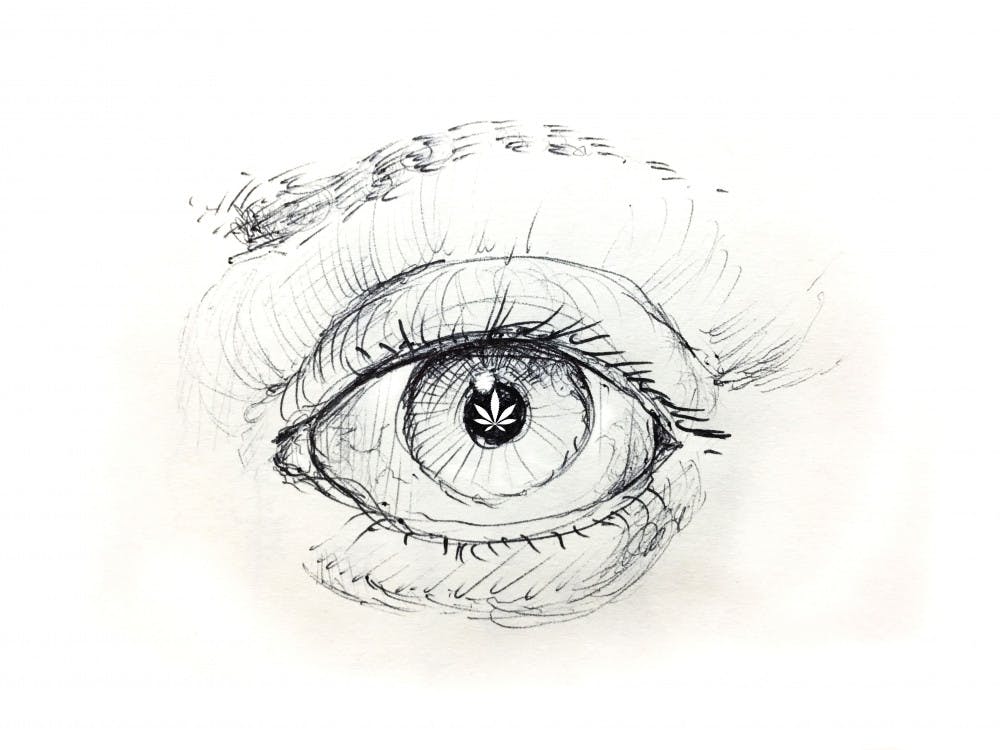A recent study co-authored by Professor of Medicine, Health Services and Policy and Practice Michael Stein suggests that, contrary to popular belief, marijuana use may have a negative effect on sleep quality. The study also indicates that anxiety and depression may play a role in both frequency of marijuana use and quality of sleep.
The study, published in the January 2016 issue of the Journal of Addictive Diseases, engaged 98 participants with an average age of 22. The participants consisted of three different groups: those who smoked marijuana every day, those who smoked marijuana occasionally — fewer than five times a week but more than once a month — and a control group of non-smokers.
The paper reports that sleep disruption in the daily use group was significantly higher than in the occasional use and non-use groups.
Co-author Deidre Conroy, a clinical associate professor of psychiatry at the University of Michigan and a long-time collaborator of Stein’s, wrote in an email to The Herald that the study is unique because “participants were not treatment-seeking or withdrawing from marijuana. They were individuals in their natural environment using marijuana as they typically do.”
Conroy wrote that the results were only significant for one sleep quality measure, the Pittsburgh Sleep Quality Index, which is a self-report questionnaire that assesses sleep quality over a one-month time interval. There were no statistical differences in sleep for daily users when other measures were used in the study.
When accounting for histories of depression and anxiety in the participants, the statistical significance disappears, suggesting an interplay between mood disorders, marijuana use and sleep quality, Conroy added.
“We can’t tell from this study if marijuana use makes people feel more depressed or anxious or if people are using marijuana because they feel more depressed or anxious,” wrote Sara Becker, assistant research professor of behavioral and social sciences and of psychiatry and human behavior, in an email to The Herald. “We also can’t tell which came first — the sleep problems or the depression and anxiety.” Becker added that a longitudinal study on this relationship may offer more insight into this trend.
Jane Metrik, assistant research professor of behavioral and social sciences and of psychiatry and human behavior at the School of Public Health, wrote in an email to The Herald that the study is consistent with her own findings. A paper she published last month in the journal Psychology of Addictive Behaviors demonstrated that sleep disturbance in patients with major depression and post-traumatic stress disorder led to marijuana use.
“Pharmacological properties of marijuana are conducive to sedation and relaxation, which could translate to subjective perception of improved sleep onset by many cannabis users,” Metrik wrote. “(This) may also explain its widespread use among individuals with sleep disturbances.”
Like Becker, Metrik also noted that further research is needed, especially on marijuana users who have been diagnosed with sleep-affecting problems such as PTSD.
Conroy wrote that she and her collaborators hope to continue with follow-up papers in the future.
The study also has a relatively small sample size and divides participants into very broad groups, Becker wrote. The threshold of five times a week or fewer for the occasional use group allows for too wide a margin, she added, suggesting that it may be worth looking into more narrowly defined categories of usage in order to more clearly see what trends are present.





